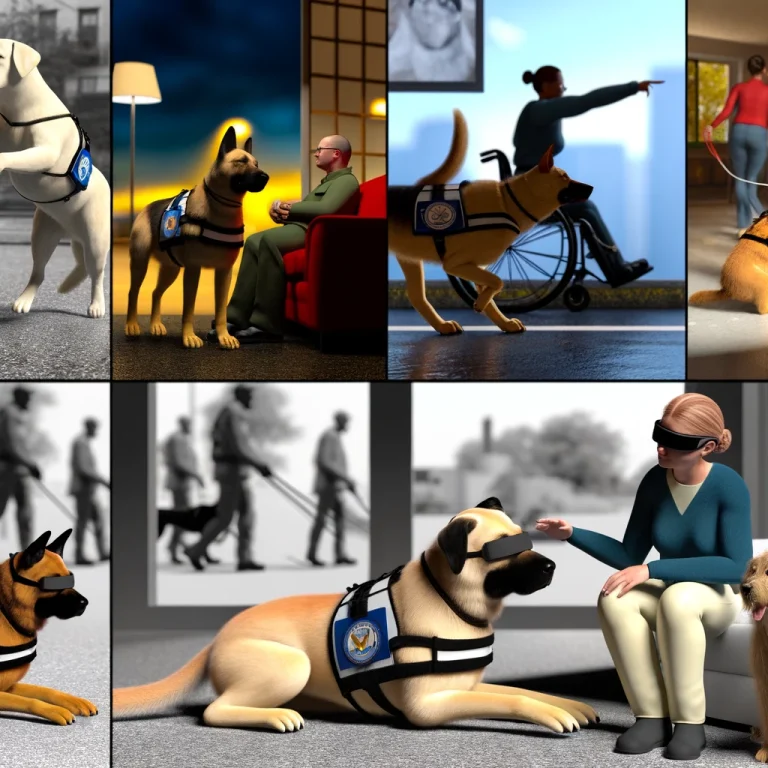Introduction: Understanding Your Rights with Service Dogs
Are you a service dog handler or someone who interacts with them? Knowing how the Americans with Disabilities Act (ADA) protects service dogs and their handlers is crucial. In this comprehensive guide, we promise to empower you with knowledge, ensuring your rights and responsibilities are crystal clear.
What is the ADA?
The ADA is a civil rights law that prohibits discrimination against individuals with disabilities in all areas of public life. Regarding service dogs, it provides specific guidelines that protect both the handler and the public.
Defining a Service Dog
Under the ADA, a service dog is defined as a dog that is individually trained to do work or perform tasks for a person with a disability. This includes physical, sensory, psychiatric, intellectual, or other mental disabilities.
Rights Under the ADA
The ADA allows service dogs to accompany their handlers in most public spaces. This includes restaurants, hotels, and stores, ensuring handlers can fully participate in everyday life. Let’s dive deeper:
Public Access Rights
- No Pet Policies: Service dogs are exempt from ‘no pet’ policies.
- Equal Access: Handlers with service dogs should be given the same access to public facilities as anyone else.
- Minimal Inquiries: Business owners can only ask two questions: Is the dog a service animal required because of a disability? What work or task has the dog been trained to perform?
Responsible Dog Handling
- Control: Service dogs must be under control at all times.
- Behavior: They must behave properly in public settings.
The ADA’s Impact on Housing
Service dogs are allowed in housing complexes, even those with no-pet policies, under the Fair Housing Act (FHA). This ensures that individuals with disabilities can live comfortably with their service companions.
Traveling with Service Dogs
When traveling, service dogs are allowed to accompany their handlers on planes under the Air Carrier Access Act (ACAA). This right ensures that individuals with disabilities can travel with their essential companions.
Employment and Service Dogs
The ADA also covers employment settings. Employers must provide reasonable accommodations to employees with disabilities, which can include allowing a service dog in the workplace.
Conclusion: Knowledge Is Power
Understanding the ADA’s provisions for service dogs not only empowers you as a handler or someone who interacts with service dogs, but it also fosters an environment of respect and inclusion. Knowing these rights and responsibilities ensures that service dogs can continue to provide invaluable support to their handlers, enhancing their quality of life. For more insights into service dogs and the ADA, remember to visit ServicePupSolutions.com.
Need help self-training a Service Dog? Click Here for assistance.






